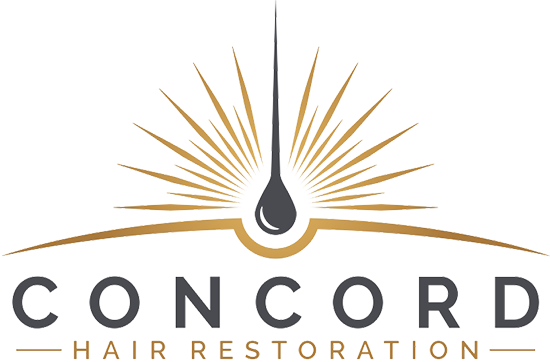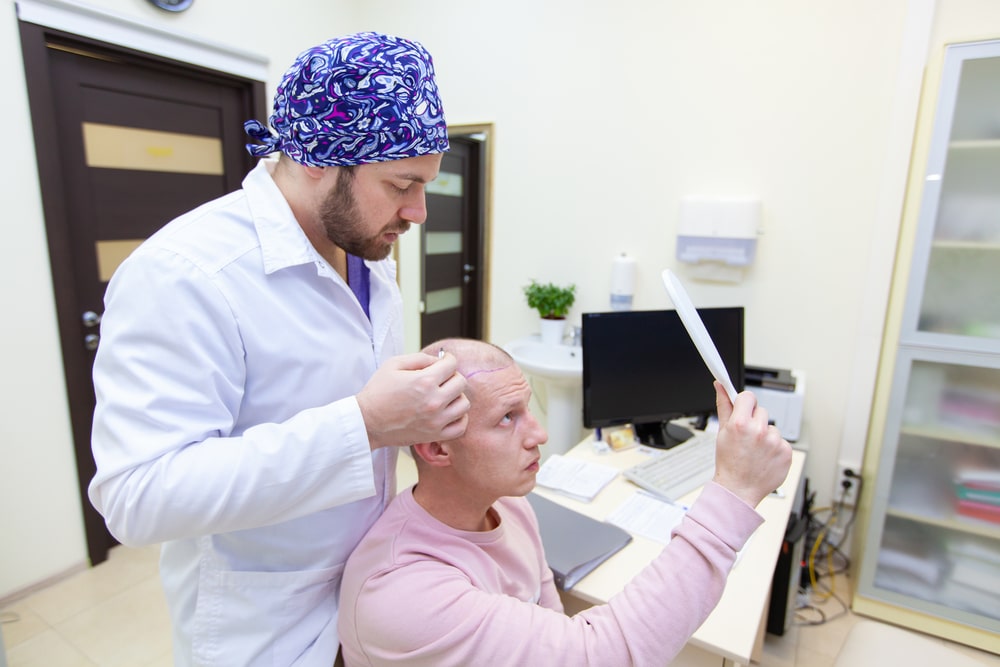Things To Know When Considering A Hair Transplant
Are you considering a hair transplant? If so, there are a few things you should know before making your decision.
Here is a step-by-step guide to help you through the process:
1. Talk to your doctor: This is an important first step in deciding if a hair transplant is right for you. Your doctor can help determine if you are a good candidate for the procedure and if so, what type of transplant would be best for you.
2. Do your research: Once you have decided that a hair transplant is right for you, it is important to do your research and choose a reputable surgeon. Be sure to ask about the surgeon’s experience and success rates with this type of procedure.
3. Know the risks: As with any surgery, there are risks involved with hair transplants. Be sure to discuss these with your doctor so you can make an informed decision.
4. Prepare for the procedure: Once you have decided to go ahead with a hair transplant, your surgeon will give you specific instructions on how to prepare for the surgery. It is important to follow these instructions carefully to ensure the best possible results.
5. After the procedure: After your surgery, it is important to follow your surgeon’s instructions for care and recovery.
Most patients can expect some degree of swelling and bruising after the surgery, but this should resolve within a few weeks. It is also important to avoid strenuous activity or exposure to the sun during this time.
By following these steps, you can ensure that you are making the best decision for your hair transplant. Be sure to talk to your doctor and do your research so you can be confident in your decision.
Here’s a visual representation of how an FUE and FUT hair transplant works below:
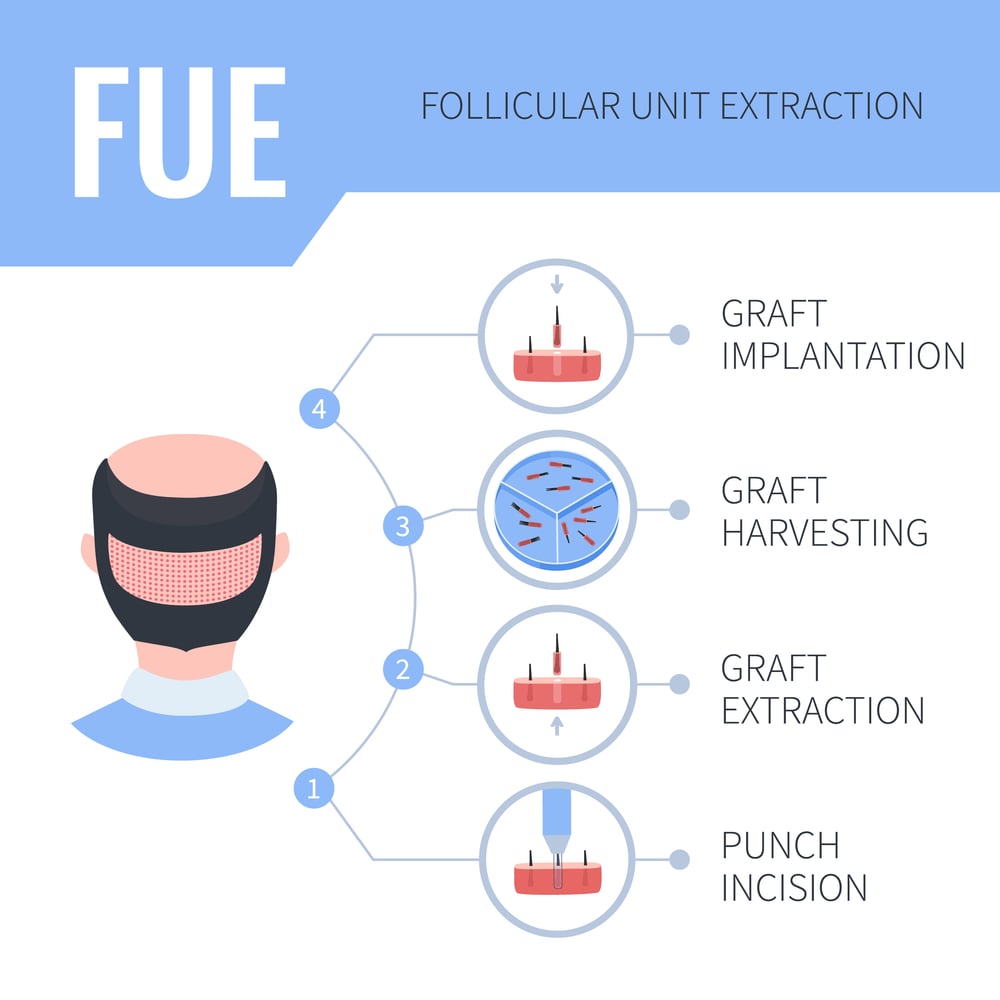
Types Of Hair Transplants
There are two main types of hair transplant: follicular unit transplantation (FUT) and follicular unit extraction (FUE).
FUT is the more traditional method of hair transplant. It involves taking a strip of skin from the back of the head, which contains healthy hair follicles.
The strip is then divided into smaller grafts containing one or two hairs each. These grafts are then transplanted onto the balding areas of the head.
FUE is a newer technique that involves individually extracting hair follicles from the back of the head and transplanting them into the balding areas.
This method is often seen as being less invasive than FUT, as it doesn’t involve making a large incision in the skin.
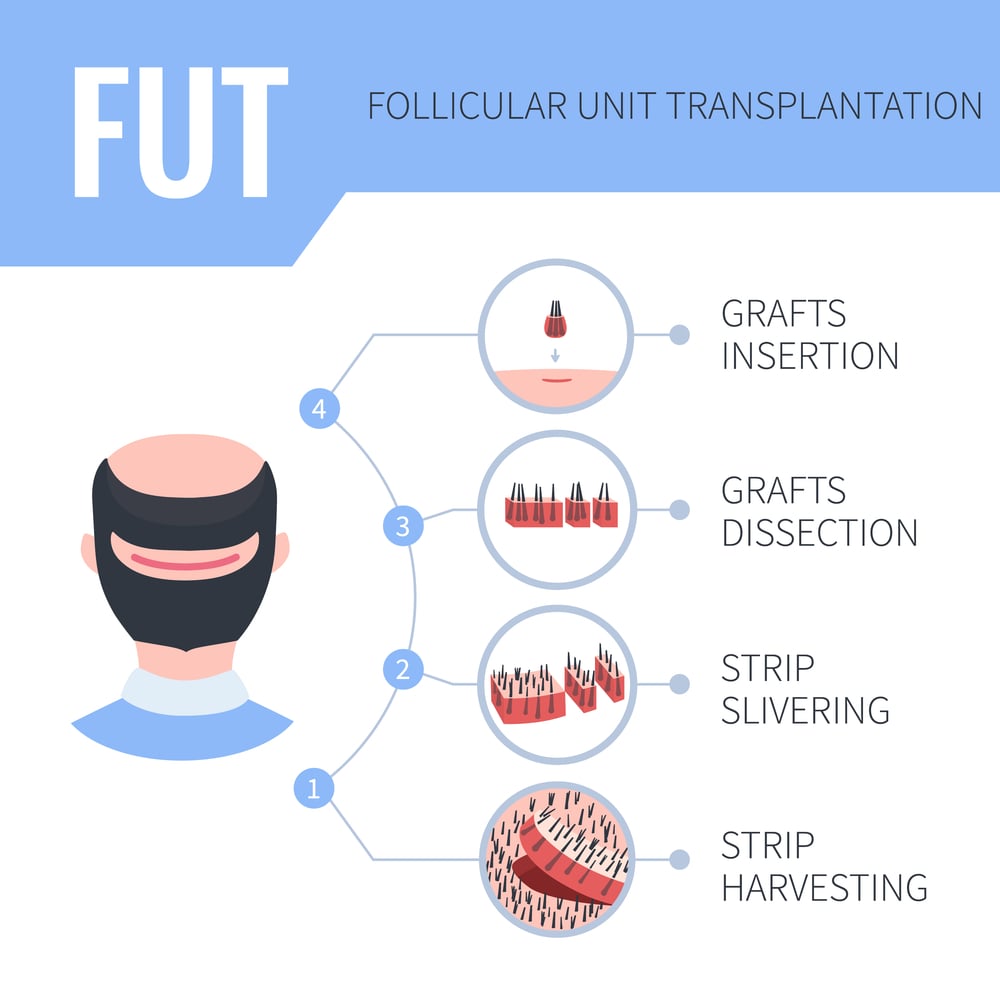
Both techniques are effective at restoring hair growth, but they do have some potential risks and side effects.
These include:
- Bleeding.
- Infection.
- Scarring.
- Swelling and bruising.
- Numbness or tingling of the scalp.
- Temporary loss of sensation in the transplanted area.
- Itching.
- Shock loss (temporary shedding of hair around the transplant site).
Overall, either method can be a good option for someone who is looking to restore their hairline. You should discuss the pros and cons of each method with a hair transplant surgeon before making a decision.
Pros And Cons Of HAIR TRANSPLANT
When it comes to hair transplants, there are a lot of things that people need to take into consideration. This is because a hair transplant is not a decision that should be taken lightly. There are a lot of pros and cons when it comes to hair transplants and, we will be discussing some of them.
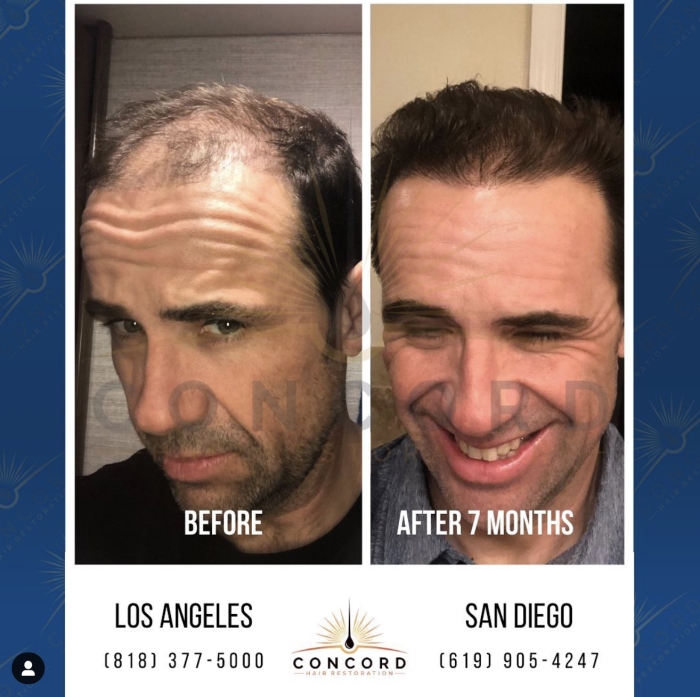
PROS
1. Hair transplants can help you achieve the look that you desire.
If you are not happy with your current hairstyle or if you are balding, then a hair transplant can help you achieve the look that you want. With a hair transplant, you can get the full head of hair that you have always wanted.
2. Hair transplants are permanent.
Once you have a hair transplant, the results are permanent. This means that you will not have to worry about your hair falling out or thinning over time.
3. Hair transplants are safe.
Hair transplants are considered to be a very safe procedure. There are always risks involved with any surgery, but the risks associated with hair transplants are very low.
4. Hair transplants can boost your self-esteem.
If you are unhappy with your appearance, then a hair transplant can help you feel better about yourself. When you look good, you feel good. A hair transplant can give you the confidence that you need to go out and enjoy your life.
5. Hair transplants can be covered by insurance.
In some cases, hair transplants are covered by health insurance. This means that you will not have to pay for the entire cost of the procedure out of your own pocket.
CONS
1. Hair transplants are expensive.
Hair transplants can be quite costly. The price of a hair transplant will vary depending on the clinic that you go to and the number of grafts that you need. (You may apply to finance your hair transplant with low affordable monthly payments)
2. Hair transplants are not available for everyone.
Not everyone is a candidate for a hair transplant. There are certain medical conditions that can make someone ineligible for a transplant. These include severe baldness, diabetes, and heart disease.
3. Hair transplants can have side effects.
Like with any surgery, there are always risks involved. Some of the potential side effects of a hair transplant include infection, scarring, and bleeding.
4. Hair transplants require maintenance.
Once you have a hair transplant, you will need to take care of your new hair. This includes shampooing, conditioning, and trimming your hair regularly.
5. Hair transplants are not always successful.
There is no guarantee that a hair transplant will be successful. In some cases, the transplanted hair does not grow or it grows in an abnormal way.
Now that you know some of the pros and cons of hair transplants, you can make an informed decision about whether or not this is the right choice for you. If you are considering a hair transplant, be sure to talk to your doctor about all of your options.

Suitable Age For HAIR TRANSPLANT
Hair transplantation is a surgical procedure that involves taking hair follicles from one part of the body and transplanting them to the balding or thinning area.
The age at which you can have a hair transplant depends on various factors. We will discuss the most suitable age for hair transplantation.
The first factor to consider is the degree of hair loss. If you are just starting to experience hair loss, you may not be ready for a hair transplant yet. It is best to wait until the hair loss has progressed significantly before considering this option.
Another factor to consider is your overall health. If you are in good health, you will likely be a good candidate for a hair transplant.
However, if you have any medical conditions that may make the surgery more difficult or risky, you may want to wait until you are in better health before having the procedure.
Finally, you will also need to consider your financial situation. Hair transplants can be expensive, so you will need to make sure that you can afford the procedure before undergoing it.
If you are considering a hair transplant, the best thing to do is to talk to your doctor about it. He or she will be able to help you determine if you are a good candidate for the procedure and will also be able to give you more information on what to expect during and after the surgery.
Remember, there is no one “right” age to have a hair transplant. The best age for you will depend on your individual circumstances.
Talk to your doctor about your options and make sure that you are making the best decision for your health and your wallet.
Hair transplants can be an effective way to treat hair loss, but they are not for everyone. If you are considering this option, talk to your doctor to see if it is right for you.
How Often Do Hair Transplants Fail?
Hair transplant surgery involves taking healthy hair follicles from another area of the scalp and transplanting them into the balding or thinning areas.
The success of the procedure depends on a number of factors, including the skill of the surgeon, the health of the donor tissue, and the overall condition of the patient’s scalp.
In general, hair transplants have a very high success rate. However, there is always a chance that the transplanted hair will not take or that the new hair will shed within a few months. This is known as “shock loss” and it is usually temporary. In some cases, the shock loss may be permanent.
There are a number of reasons why a hair transplant might fail. The most common reason is that the follicles are not healthy enough to survive the transplantation process. This can be due to poor blood supply, damage from the surgery, or simply because the follicles are too old.
Another common reason for failure is a rejection of the transplanted follicles by the body. The body sees the transplanted follicles as foreign objects and tries to destroy them. This can lead to inflammation and scarring, which can make it difficult for the new hair to grow.
Finally, some people may not see the results they were hoping for because of the way their hair grows. For example, if someone has very fine hair, they may only see a small amount of new growth after a transplant.
Despite the fact that hair transplants can fail, the vast majority are successful.
A hair transplant can be a life-changing procedure that can help restore your confidence and improve your appearance.
However, it’s important to do your research and consult with a qualified surgeon before undergoing the procedure.
Be sure to ask about the risks and potential complications involved so that you can make an informed decision about whether or not a hair transplant is right for you.
Now that you know more about hair transplants, get yourself a free hair consultation today!
Concord Hair Restoration has two locations in Southern California, performed by Dr. Ben Mousavi M.D. – a highly reputable hair transplant doctor with years of experience and beautifully natural-looking results.
Los Angeles Office
16661 Ventura Blvd.
Suite #824
Encino, CA 91436
(818) 800-2002
San Diego Office
7801 Mission Center Ct.
Suite #105
San Diego, CA 92108
(619) 905-HAIR (4247)
